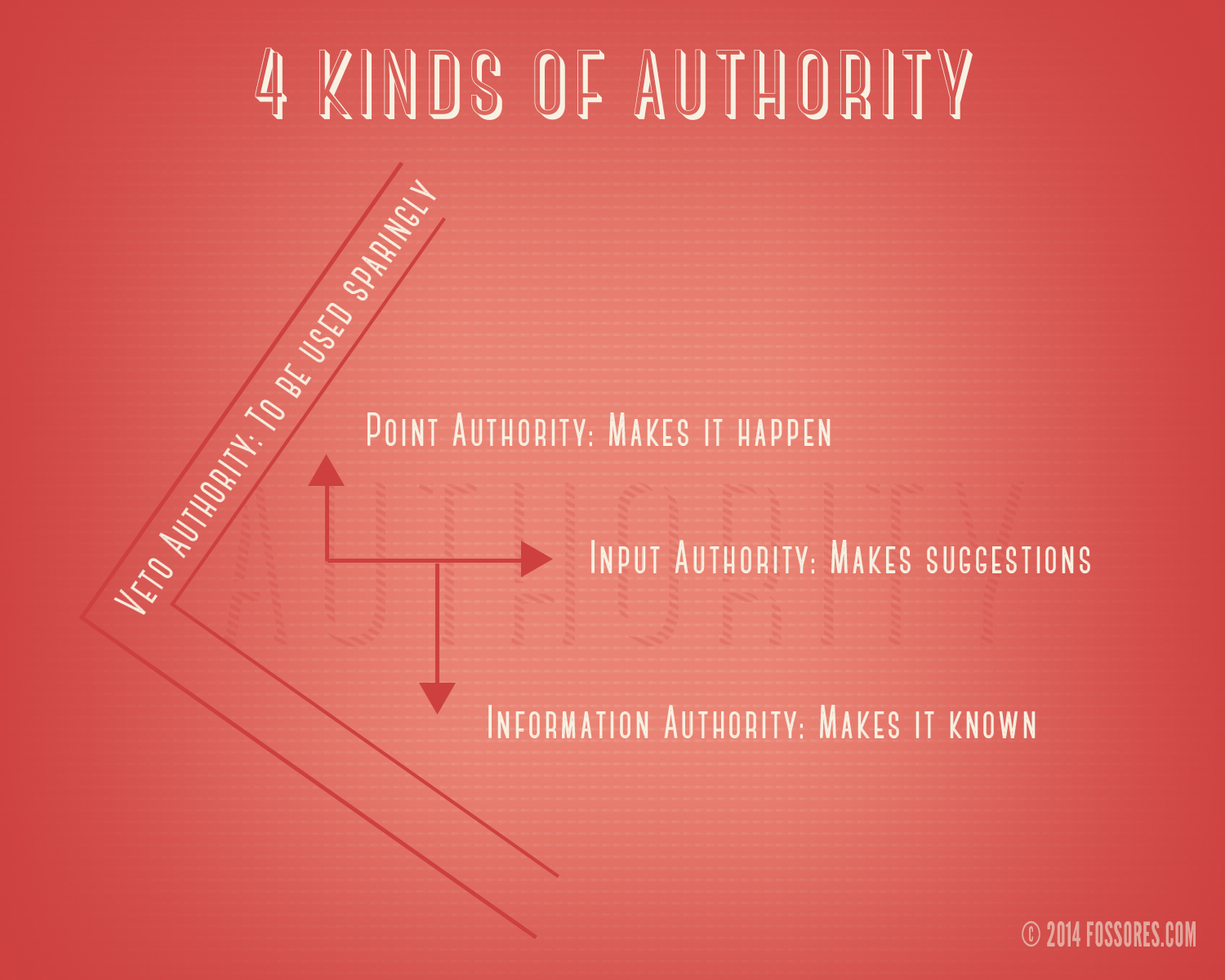Steve Stroope, pastor of Lake Pointe Church (http://www.lakepointe.org/) in Rockwall, Texas, has been very helpful in my ministerial career, especially pertaining to issues of leadership, structure, and strategy. One of the most beneficial pieces of information Steve has given me is on the nature of 4 kinds of authority involved in any decision. I reprint Steve’s article here with his permission.
Point Authority: Every team, no matter how collaborative, needs a point leader. If you ask a whole team to be accountable, most often it means that no one is accountable. Point authority means this person is responsible to get the task done. On a healthy team, there may be one person with point authority for the primary task, but he/she will delegate point authority to others for subtasks and will serve under their authority when they are operating within that task area.
Veto Authority: The governing board, by the nature of its highest position of authority before God, has ultimate veto authority over any decision or action in the church. However, each time the veto is used arbitrarily, it destroys the ownership and sense of responsibility of the staff and key leaders. The use of veto authority should not be an occasion to pass blame downward, but should be a time that the board considers its failure to hire/appoint the right people or make the goals and boundaries clear.
Input Authority: This is the authority of team members to state their opinion about a decision with the attached right to hear back what was done with their opinion. The point person of a team must not only stop and hear the opinion, but must also get back to the person with their decision about the opinion. Any team member has this authority with the rest of the team. As a church gets increasingly collaborative, this type of authority is exercised more and more and veto authority is exercised less and less.
Information Authority: This is the authority to hear about decisions after they are made. People that are affected by a decision but are not on the team to develop the decision have the authority to hear what was decided. This includes the congregation, but also sometimes the neighborhood surrounding the church if it is a facility or land use issue.
The reason authority needs to be clarified is that in consumeristic, individualistic cultures like the United States, people tend to gravitate to having authority without the attached responsibility and accountability. People in the congregation may assume they have line-item veto over any decision at any level. Many churches build up a large “middle section” of committees who don’t have the ultimate responsibility of the board, or the front-line sense of responsibility of those who are actually working in the ministry. These “middle-sections” foster confusion, resentment, and possible revolt unless the point leader is clear from the outset concerning who has what power in which area.
fossores
Related posts
Categories
Category Cloud
Tag Cloud
Recent Posts
- Victors and Victims November 6, 2018
- 3 Hacks for Happiness October 29, 2018
- Hope Against Death September 20, 2018
- The Shape Of The Cross September 19, 2018


